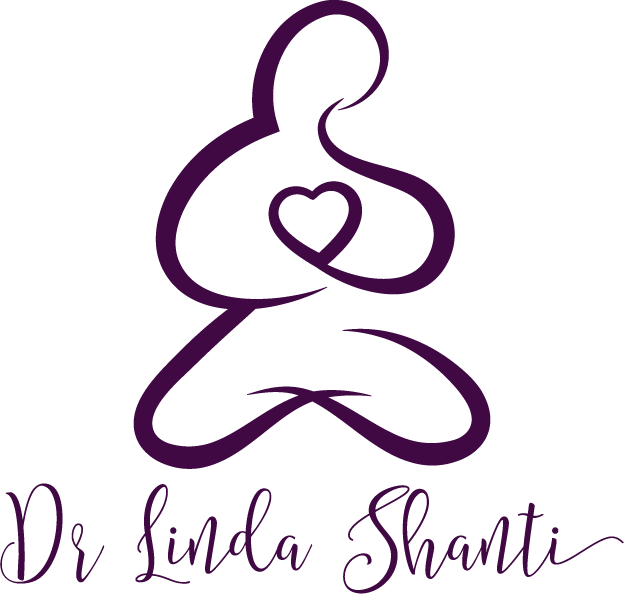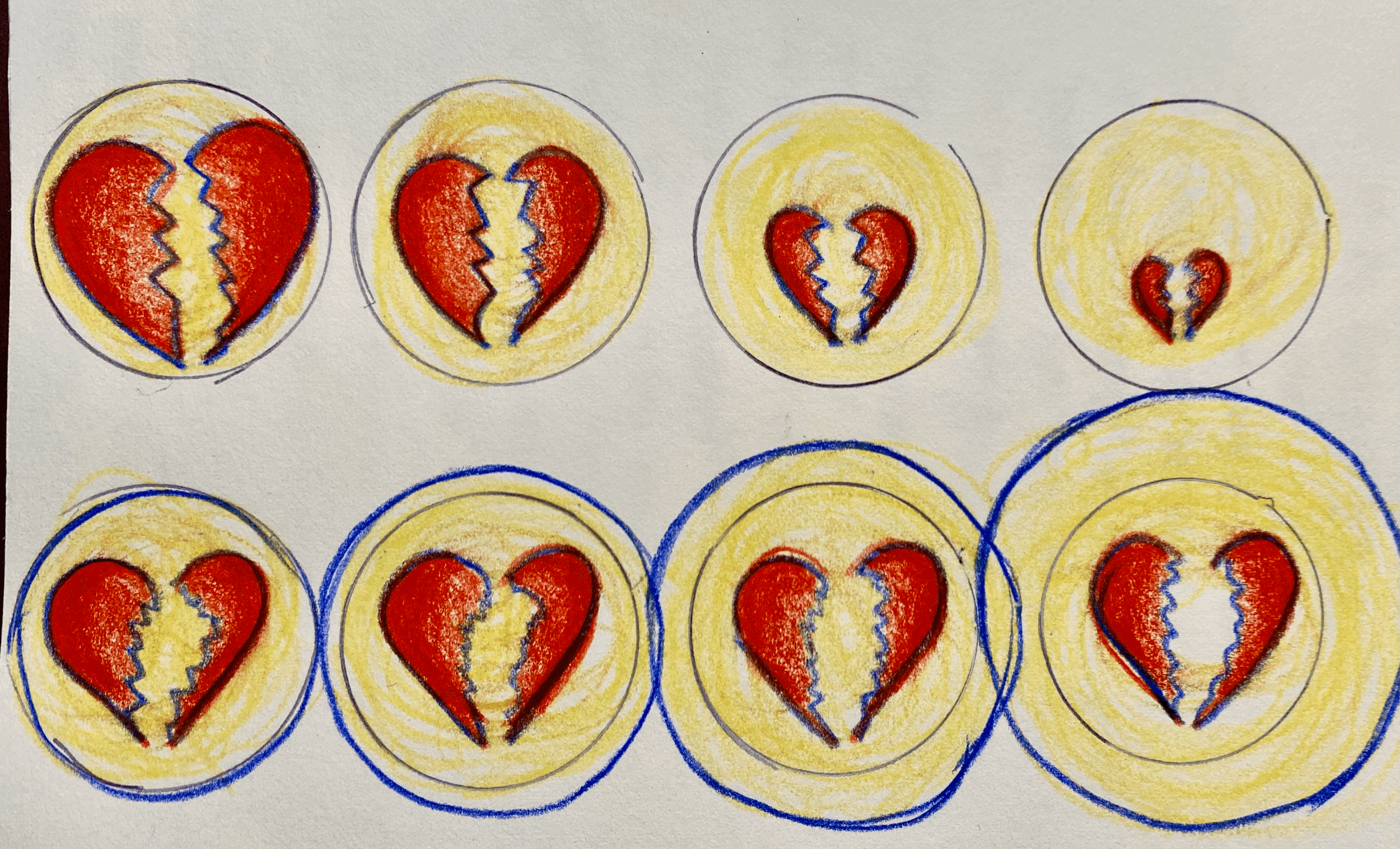Exploring the experience of recovered and recovering, grief and grieving
There is an ongoing debate in the eating disorder recovery community about whether you can ever be recoverED, or if you will always be recoverING. One of my early recovery mentors was fond of saying:
“Recovery is a process, not an event.”
He was schooled in the 12-step approach to recovery, which believes you will be recovering for the rest of your life, never done. On the flip side, Carolyn Costin, a leader in the field of eating disorder recovery treatment[1] is known for her stance on being recovered: you can claim this, you can be this, you can say “I am recovered.” Period. Which one is correct? I say, yes to both.
You can absolutely be free from eating disordered behaviors. You can be free from bingeing, purging, restricting, body checking, and overexercising. You can stop believing the illusion that obsessing about body image or losing weight will resolve complex life problems. You can stop believing the lie that changing the size of your thighs or stomach will make you loved/competent/confidant/never-have-to-feel-sad-ashamed-angry-or-afraid. (But if you get rid of the arm flab, you will be a more worthy human. JK. I know it feels heavy if you are in it. It doesn’t have to be though. Really. Keep going. Keep considering that diet culture is a bunch of lies, and there is actually nothing wrong with you. Or your body. Just keep considering it as a possibility. It is.)
In addition, I also take the stance that you can be recovering for the rest of your life. When I say recovering, I mean continuing to grow. If I didn’t continue to grow as a human, I truly don’t know how I could help others to do so. It is the foundation of where I sit as a therapist. If I’m not leaning into challenging my own beliefs about perfectionism, worthiness, achievement, and what society says is valuable vs what I discover and hold as valuable from my own inner compass, how can I facilitate this for others? I have been in therapy for decades. Not because there is something wrong with me. But because I choose to examine in my own mind, emotions, and body how I want to live this one precious life I have been given. What meaning to I want to create? What world do I want to help facilitate for my child to grow up in? If I want to be of service, how can I get my own shit out of the way, so I can hold space for others? The shit doesn’t go away (sorry, not sorry). But if I’m in therapy, I can flush my own shit enough to hold space for my clients to relieve their shit. (Bet you’ve never heard therapy described that way, huh?)
But what about the shit of grief?
Is it ever done? Can we ever “move on” from grief like we can be recovered from an eating disorder? Well, first of all, if you are a support person to someone that is grieving, I would suggest never using the phrase “move on.” Definitely do not tell them that their loved one would want them to “move on.” Because what the grieving person will likely hear is some version of this:
“You suck as a griever. You’re not doing it right. You should be further along. I’m uncomfortable where you are, so you should be somewhere else. You should stop talking about your person. I know what your person would want more than you do. It makes me uncomfortable for you to not be ‘further along’ than where you are. You should ‘move on’ because your loved one is gone.”
(FYI the eating disorder recovery version of this is “But you don’t look like you had/have an eating disorder.” Or “You look so healthy!” Or “You’re not fat!” As I can’t find a way to insert a frustrated angry emoji, I will write: Ahhhhhhhh!!! Don’t. Go. There. Fat is not a bad word. Fat is not bad. Fat is not the enemy we are fighting here. That is a whole other blog.)
Moving on vs Moving Forward
OK, back to grief. Can we ever move on? Should we move on? First of all, let’s use a different phrase. Some grievers prefer the term “move forward,” some like “go on,” some like “carry them forward, with us.” We don’t “move on” from our loved one, because they, our memories, and our life with them, are still with us. My son’s Papa will always be his Papa. He is not “gone” because he died. We won’t “move on” from this. This will never change. A big part of grief is to find a way to do what Worden calls finding “an enduring connection with the deceased while embarking on a new life.” [2] The task is to integrate our different connection with our person, as we move forward.
Do you know what I love most about Worden? He is continually updating his model of the 4 tasks of mourning. I love someone who stays in growth mindset process, who is not afraid to say “I’ve thought about that. I’ve observed. I’m not sure I got it quite right. I’m going to try again. What about this?”
I love that because that is what I strive to do and be as a therapist and human, but also because, in my experience, that is what the process of grief is like! It starts out one way, and you think “Oh I guess this is what grief is.” And then it completely changes. On a dime. In a nonlinear way. At random moments. And also in a broad-brush-strokes-big-picture-of your-life-kind-of-way. In the beginning, you are so fixated on surviving and getting through the overwhelming rawness of the pain. Just like in early eating disorder recovery, people often ask, in early grief:
“Does it get better? When does it get better? How does it get better?”
To which the wise ones say:
“Tell to me about what it is like for you? What is it like now?”
(Hint for grief support people: That’s what you can say instead of “Your loved one would want you to move on.”)
Also, you can watch this beautiful video from Megan Devine, author of It’s OK That You’re Not OK:
https://www.youtube.com/watch?v=l2zLCCRT-nE
Grief, like recovery, is individual. Although sometimes it does follow a trajectory like this recovery slogan:
It gets better
Then it gets worse
Then it gets different
Then it gets real different.
There are all kinds of metaphors about how grief is something you learn to carry more gracefully over time. And the rawness of it can become less all-consuming. This is true in my experience. The grief doesn’t get smaller. We grow our life bigger, around the grief, and learn to live with it differently. Here is a visual of Dr Lois Tonkin’s model of grief, which shows how, instead of the grief growing smaller over time, the griever’s life grows larger around the grief.[3]
Do I think we ever get to a point where we are “grieved” like we are “recovered”? No. I believe we get to a place where, if we choose to, grief opens us up to being better humans. Perhaps we are more grateful, or our edges have been worn down where we use to be rigid or unforgiving. Not everyone will experience an eating disorder, but everyone will experience grief. It is part of the human experience. We will all experience our loved ones dying. It’s not an illness. Unlike an eating disorder, grief is not something to recover from. It is something to integrate into our soul, and our life.
However, both recovery and grief can be great teachers, if you let them. They are mine. They both brought me to my knees and opened my heart in ways I couldn’t have fathomed before they came into my life. I will never be the same person I was before. Why would I be? You won’t either, if you choose to let recovery, grief, or both be your teachers.
If your heart has broken open from the pain of experience, it has the opportunity to grow larger, more tender, more grateful, more wise. Why would you want to be the same person as you were before? (Fear? It’s time to let that shit go. Therapy helps). Turn toward your broken (and much bigger and wiser) heart for guidance. Start getting curious about the question: who am I now? And, even better, who do I want to become?
[1] https://www.carolyn-costin.com/about
[2] https://whatsyourgrief.com/wordens-four-tasks-of-mourning/
[3] https://www.funeralguide.co.uk/help-resources/bereavement-support/the-grieving-process/tonkins-model-of-grief#:~:text=Tonkin's%20theory%20of%20grief%20suggests,will%20grow%20a%20little%20bigger.








